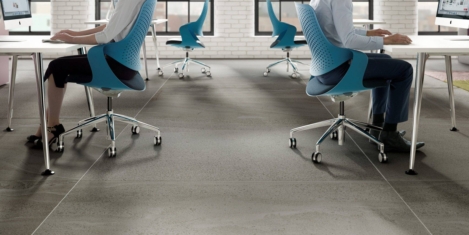May 24, 2017
Suppressed global productivity levels weigh down on personal wealth 0
 The slowdown in global productivity – already underway before the last economic crisis – combined with sluggish investment, continued to undermine rises in economic output and material living standards in recent years in many of the world’s economies, according to a new report released by the OECD. In its latest Compendium of Productivity Indicators, the OECD also highlights a decoupling between productivity growth and higher real average wages in many countries, resulting in continued declines in labour’s share of national income. The report claims that the contribution of labour utilisation (hours worked per capita) to GDP growth has risen markedly in a number of countries, notably in the United Kingdom and the United States. However, rises in labour utilisation reflect two opposing effects: higher employment rates but lower average hours per worker, which points to more part-time working, often in low productivity jobs.
The slowdown in global productivity – already underway before the last economic crisis – combined with sluggish investment, continued to undermine rises in economic output and material living standards in recent years in many of the world’s economies, according to a new report released by the OECD. In its latest Compendium of Productivity Indicators, the OECD also highlights a decoupling between productivity growth and higher real average wages in many countries, resulting in continued declines in labour’s share of national income. The report claims that the contribution of labour utilisation (hours worked per capita) to GDP growth has risen markedly in a number of countries, notably in the United Kingdom and the United States. However, rises in labour utilisation reflect two opposing effects: higher employment rates but lower average hours per worker, which points to more part-time working, often in low productivity jobs.

























 London’s office workers are looking for shorter commutes, demanding more collaborative and networking opportunities while at work and better access to green space, retail, leisure and wellness; all of which could present a huge opportunity for the less congested outer London boroughs, a new report suggests. According to Savills latest London Mixed Use Development Spotlight, as employers and employees alike demand more from their workplace and their work- life balance, London’s outer boroughs could reap the benefits by providing greater flexible office space and affordable homes at a variety of price points. According to Oxford Economics, employment in sectors that tend to occupy co-working spaces is set to rise by 20,000 people in the outer London boroughs over the next five years, which equates to a gross additional need of 1.6 million sq ft (148,644 sq m) of office space.
London’s office workers are looking for shorter commutes, demanding more collaborative and networking opportunities while at work and better access to green space, retail, leisure and wellness; all of which could present a huge opportunity for the less congested outer London boroughs, a new report suggests. According to Savills latest London Mixed Use Development Spotlight, as employers and employees alike demand more from their workplace and their work- life balance, London’s outer boroughs could reap the benefits by providing greater flexible office space and affordable homes at a variety of price points. According to Oxford Economics, employment in sectors that tend to occupy co-working spaces is set to rise by 20,000 people in the outer London boroughs over the next five years, which equates to a gross additional need of 1.6 million sq ft (148,644 sq m) of office space.







May 18, 2017
Reflection on facilities management and the people I’ve met along the way 0
by Paul Carder • Comment, Facilities management
(more…)